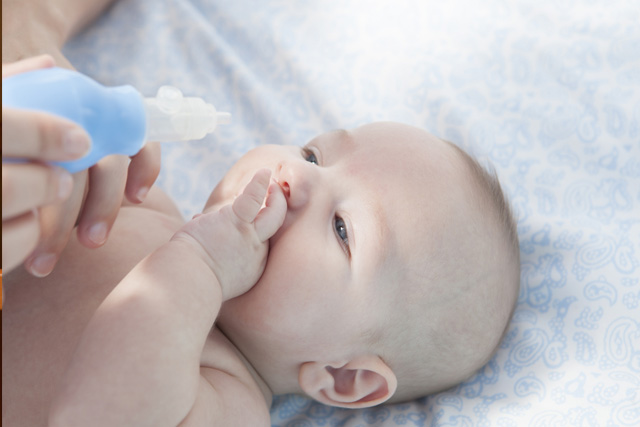What Determines Newborn Growth and Development?
Genetic influences shape your baby’s physical and behavioral traits. Environmental factors, like nutrition and maternal health, play significant roles in development. Proper nutrition fosters brain growth and physical well-being. Maternal well-being impacts your newborn’s health. Watch out for harmful substances‘ impact on growth. Bonding with parents nurtures social and emotional skills. Your baby’s sleep patterns influence brain and physical development. These factors are vital in determining your newborn’s growth and development.
Key Takeaways
- Genetic influences determine physical and behavioral traits.
- Maternal health impacts newborn’s development.
- Nutrition is crucial for brain and physical growth.
- Environmental exposures can influence growth and development.
- Parental interaction and bonding foster social and emotional development.
Genetic Influences

Genetic influences play a pivotal role in shaping a newborn’s growth and development from the moment of conception. The debate between nature vs nurture has long been a topic of interest in understanding how individuals develop.
DNA inheritance is the blueprint that guides the physical and even some aspects of the behavioral traits a newborn will exhibit. Your genetic makeup determines characteristics like eye color, hair texture, susceptibility to certain diseases, and even aspects of intelligence.
While genetics play a significant role, it’s worth mentioning that environmental factors also contribute to a child’s development. Nurture, which includes factors like upbringing, education, and social interactions, can influence how genetic traits manifest.
Understanding the interplay between nature and nurture is essential in comprehending the complexity of human development. As you observe a newborn’s growth and behavior, keep in mind that genetics lay the foundation, but environmental influences also play a significant role in shaping who they become.
Nutritional Factors

Considering the critical role nutrition plays in newborn growth and development, it’s essential to understand how dietary factors impact various aspects of a child’s early life. Meeting a newborn’s dietary requirements is indispensable for healthy growth and development.
Breastfeeding, in particular, provides numerous benefits to newborns. Breast milk contains essential nutrients and antibodies that help strengthen the baby’s immune system, leading to lower rates of infections and diseases. Additionally, breastfeeding fosters a strong bond between the mother and child, promoting emotional well-being for both.
The dietary requirements of newborns vary depending on factors such as age, weight, and overall health. Proper nutrition during the early stages of life is pivotal for brain development, bone growth, and overall physical health. Inadequate nutrition can lead to developmental delays and long-term health issues. Breastfeeding benefits extend beyond nutrition; it also aids in the development of the baby’s jaw muscles and promotes proper dental alignment.
Understanding and meeting a newborn’s nutritional needs, particularly through breastfeeding, are essential for ensuring healthy growth and development in the early stages of life.
Maternal Health
A mother’s physical and mental well-being during pregnancy and postpartum greatly influences her newborn’s health and development. Maternal health plays a significant role in determining the well-being of the newborn. Factors such as the mother’s nutrition, overall health, and mental state can impact the baby’s growth and development.
Risk factors such as maternal obesity, smoking, substance abuse, and certain medical conditions can negatively affect the baby’s health. Prenatal care is essential in monitoring and addressing these risk factors. Regular check-ups, proper nutrition, and following healthcare provider recommendations are essential in promoting a healthy pregnancy and ensuring the baby’s optimal development.
Maternal mental health is another significant aspect that can impact the newborn. Conditions like depression and anxiety can affect the mother’s ability to care for herself and the baby, potentially leading to developmental delays or other health issues in the newborn.
Therefore, maintaining good maternal health through proper prenatal care and addressing any risk factors is crucial for promoting the overall well-being and healthy development of the newborn.
Environmental Exposures
Exposure to various environmental factors can significantly influence a newborn’s health and development. Air pollution has been linked to hindered cognitive development in newborns. Studies suggest that exposure to pollutants like particulate matter and nitrogen dioxide may impact brain development, leading to cognitive delays and behavioral issues later in life.
Additionally, household chemicals can also play a role in affecting physical growth. Chemicals found in common household products such as cleaning agents, pesticides, and plastics can potentially disrupt the endocrine system, which regulates growth and development processes. It’s essential to minimize newborns’ exposure to these harmful substances by ensuring good ventilation, using natural cleaning products, and storing chemicals safely out of reach.
Parental Interaction

Regular interaction with parents is essential for newborns’ social and emotional development. Attachment bonding plays a key role in shaping a child’s sense of security and trust in the world. By responding to a baby’s needs promptly, parents establish a foundation for healthy emotional regulation.
Through interactions with caregivers, infants learn to interpret social cues, which are fundamental for forming relationships later in life. Parents also provide cognitive stimulation by engaging in activities like talking, singing, and playing with their newborns. These interactions aid in the development of neural pathways in the brain, fostering cognitive growth.
Emotional regulation, facilitated by parental interaction, helps infants learn to manage their emotions in stressful situations. This skill is foundational for mental health and wellbeing throughout life. Additionally, the cognitive stimulation provided by parents through activities such as reading to their newborns can enhance language development and overall cognitive abilities.
Hence, regular and positive interactions with parents play a significant role in fostering a newborn’s social, emotional, and cognitive development.
Sleep Patterns

Newborns experience unique sleep stages that play a vital role in their growth and development.
Understanding the impact of sleep deprivation on infants is essential for parents to support healthy sleep patterns.
Observing these sleep stages can provide valuable insights into your newborn’s overall well-being.
Sleep Stages in Newborns
Understanding the sleep stages in newborns is essential for parents to establish healthy sleep patterns early on. Newborns experience two main sleep stages: rapid eye movement (REM) sleep and non-REM sleep. REM sleep is critical for brain development as it’s during this stage that the brain processes information and forms connections. During non-REM sleep, the body focuses on physical growth and repair.
Newborns have shorter sleep cycles compared to adults, typically lasting around 50-60 minutes. These cycles alternate between REM and non-REM sleep, with a higher proportion of REM sleep compared to adults. This high amount of REM sleep is crucial for the development of the central nervous system.
Quality of sleep is essential for newborns as it directly impacts their overall growth and development. Adequate sleep helps in consolidating memories, regulating emotions, and supporting cognitive processes. Parents should create a conducive sleep environment and establish consistent bedtime routines to promote healthy sleep patterns in newborns.
Impact of Sleep Deprivation
Experiencing sleep deprivation can greatly disrupt the sleep patterns of infants, impacting their growth and development. Sleep quality plays a critical role in cognitive development during the early stages of life. Infants deprived of adequate sleep may exhibit delays in cognitive functions such as attention, memory, and language development.
Moreover, sleep deprivation can also affect motor skills in newborns. Insufficient sleep hinders the ability of infants to develop and refine their motor skills, including grasping objects, rolling over, and eventually crawling and walking. This deficiency in motor skill development can lead to delays in physical milestones and overall movement capabilities.
It is essential for caregivers and parents to recognize the importance of establishing healthy sleep habits for infants to support optimal growth and development. Prioritizing adequate sleep, ensuring a conducive sleep environment, and maintaining a consistent bedtime routine can greatly contribute to enhancing sleep quality and positively impact cognitive and motor skill development in newborns.
Developmental Milestones

Evaluating developmental milestones in infants is essential for monitoring their progress and ensuring proper growth and cognition. Cognitive development and motor skills are pivotal aspects of a child’s early milestones. Infants begin by responding to stimuli and gradually progress to more complex problem-solving skills, showcasing their cognitive growth.
Motor skills develop concurrently, starting with basic reflexes like grasping and rooting, leading to milestones such as sitting, crawling, and eventually walking.
Language acquisition is another essential developmental milestone. Infants initially communicate through crying but soon begin babbling and imitating sounds. This progression eventually leads to their first words and the development of language skills.
Sensory exploration is also a key component of infant development, with babies using their senses to understand the world around them. From touching and tasting objects to exploring with their eyes and ears, sensory experiences play a significant role in shaping early development.
Frequently Asked Questions
Can Prenatal Stress Affect Newborn Growth?
Prenatal stress can indeed impact newborn growth, including birth weight. Maternal health, influenced by parental anxiety, plays a significant role in shaping the baby’s development, especially in areas like brain development. Addressing these factors is vital for the best outcomes.
How Do Social Interactions Impact Development?
Engaging in social interactions, like parental bonding or forming attachments, shapes your development. Peer relationships and socialization are essential for learning and emotional growth. These connections influence how you understand the world and build relationships.
What Role Does Physical Activity Play in Growth?
Engaging in outdoor play is essential for developing motor skills in newborns. Regular physical activity fosters coordination and strength. Encourage movement through fun activities to support holistic growth and development in your little one.
Is There a Link Between Pet Exposure and Development?
Exposure to pets has been linked to lower rates of pet allergies. Studies suggest that pet ownership can positively impact cognitive development and emotional intelligence in children. Consider the benefits of pet interaction for your child’s development.
Can Music Influence a Newborn’s Cognitive Development?
Introducing your newborn to musical stimulation can greatly impact their cognitive skills. Studies show that music has the power to enhance brain development in infants, improving memory, language abilities, and overall cognitive functions.
Conclusion
In summary, newborn growth and development are determined by a combination of factors:
- Genetic influences
- Nutritional factors
- Maternal health
- Environmental exposures
- Parental interaction
- Sleep patterns
These factors play a vital role in shaping a newborn’s physical and cognitive development, as well as their overall health and well-being.
By understanding and addressing these influences, parents and caregivers can help support ideal growth and development in their newborns.

Chad Adan Kace, a young dad from Vermont, shares his parenting journey with a touch of humor and lots of love. Father to a lively baby, he explores the joys and challenges of fatherhood through his stories.







